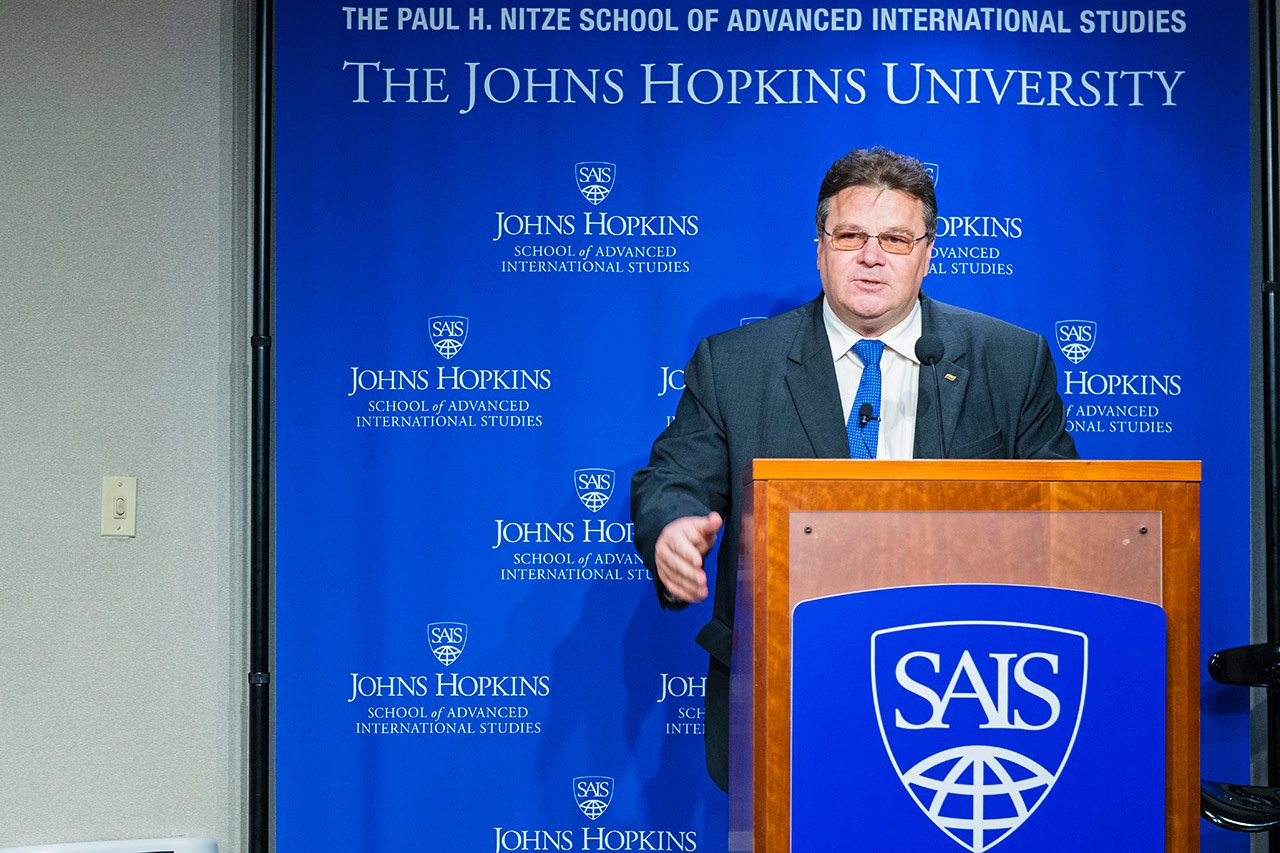

Speaking after an appearance at Johns Hopkins’ School of Advanced International Studies, Linkevičius said that Russia is “testing” what it can do, and said that Russia’s alleged abduction of a security officer in neighbouring Estonia is part of a pattern.
“This is testing,” Linkevičius said. “This is [a] method of testing what kind of reaction — could be political level, practical level, public mood — and this increases tensions.”
Linkevičius cited more examples from Lithuania, including Russia’s decision to re-open cases against Lithuanians who refused to be conscripted into the Soviet army after Lithuania declared independence. He also accused Russia of having illegally seized a Lithuanian fishing vessel.
But he said Lithuania was not overly concerned about facing the same level of aggression as Ukraine, which has faced escalating aggression by Russia since last winter, culminating in a recent land invasion.
Asked whether Russia was spreading its influence by funding NGOs or other groups in the country, Linkevičius said, “I shouldn’t say about extremist groups in Lithuania because they’re not existing so far, but when it comes to the information propaganda machinery, this is really definitely true.”
He said that Russia was “financing propaganda sources” in Lithuania and using companies like Gazprom to influence issues in the country, spending “billions of dollars” along the way.
“You cannot occupy so easily NATO territory but you can conflict, make tensions, use some minorities,” Linkevičius said, adding that he didn’t think Russia would be able to use the Russian minority in Lithuania because they are well-integrated and loyal to the state.
“I don’t think we could be manipulated so easily,” he said. But “we do feel this influence really quite quite strongly.”
Minister Linkevičius was also asked about a Russian-style anti-gay propaganda law that was introduced earlier this year in Lithuania. He said it wasn’t a sign of Russian influence, but that Lithuania’s own culture has to change — and is changing.
“Time is healing this situation and we are progressively moving ahead,” he said. “The progress every year is very visible. We cannot speed up or force the process, it would be counterproductive.”
I admit it: I’m not that type of person who follows domestic and international politics…
While Prime Minister Gintautas Paluckas does not take issue with the statements made by the…
Lithuanian economists are surprised to see our country's economic growth: the Estonian economy has been…
"The fate of Nemuno Aušra (Dawn of Nemunas) in the coalition has been decided; they…
Airvolve, a Lithuanian dual-purpose aeronautics company, has successfully completed its first round of testing and…
The world is becoming smaller, more intertwined, and increasingly fragmented, with many of the previous…